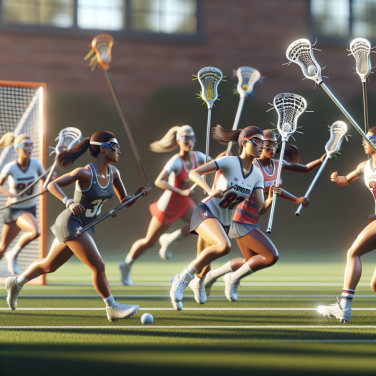Enhancing Concentration: Mental Strategies for Target Shooting Below the Surface
Target shooting requires not only physical skill but a high level of concentration and mental focus, especially in the unique environment beneath the waves. Below the surface, the art of underwater target shooting presents divers with a unique set of challenges that demand enhanced mental strategies to maintain precision and focus necessary for success. The following strategies can be seamlessly integrated into your underwater target shooting routine to take your performance to new depths.
**Visualization and Mental Rehearsal**
Visualization is a powerful tool for athletes, and underwater shooters can benefit greatly from mentally rehearsing their dive and shooting sequence. By visualizing a successful target shooting attempt in detail, including the sensation of the water around you, the aim, and the trigger pull, you can prepare your mind for the task at hand. This technique helps to cement the necessary movements and reactions in your mind, so when it’s time to perform, your body knows exactly what to do.
**Breath Control Techniques**
While controlling one's breath is critical for any form of shooting, it becomes even more crucial underwater. The practice of slow, controlled breathing not only conserves air but also stabilizes the body, reducing the natural sway that comes from the body’s buoyancy underwater. By focusing on breath control and utilizing slow inhalations and exhalations, the shooter can achieve a steadier aim and a calmer state of mind, which significantly improves focus and precision.
**Mindfulness and the Present Moment**
Remaining present is essential in underwater shooting, where the environment is constantly shifting. Distractions can lead to a lack of focus and impaired performance. Practicing mindfulness allows shooters to become more aware of their current experience, minimizing distractions such as the cold, the pressure of competition, or internal self-doubt. This heightened awareness also ensures better decision-making regarding when to take the shot, as the shooter is acutely aware of their internal and external environments.
**Self-Talk and Positive Reinforcement**
What shooters tell themselves before and during a dive impacts their concentration and performance. Engaging in positive self-talk and employing affirmations can significantly enhance confidence and focus. Replacing negative thoughts with positive ones, such as "I am prepared" or "I am focused," can shift one's mindset towards success. This technique promotes a mental state where concentration is heightened, and doubt is minimized.
**Routine and Consistency**
Establishing a routine or ritual before taking a shot can signal to the brain that it's time to focus.
Read also:
Power Play Opportunity: Hockey Star Faces Penalty Box Time
Mastering the Elements: Techniques for Accurate Underwater Shooting
Underwater target shooting is a discipline requiring immense focus and meticulous precision. The key elements that professionals must master to excel in this art are often hidden beneath the surface of the water, demanding a deeper understanding of the unique challenges presented by the aquatic environment. Here is a look into the techniques that are vital for accurate underwater shooting.
**Understanding Light Refraction**
Light behaves differently underwater due to the density of water compared to air. This refraction causes objects to appear closer and larger than they actually are. Shooters must practice judging distances within this refracted space, often relying on reference points or specialized equipment to gauge the true distance to their targets. Additionally, mastering the use of underwater sights can compensate for the displacement of an object's visible location.
**Managing Buoyancy and Movement**
The buoyancy experienced by a shooter can greatly affect aim and stability. Unlike shooting on land, underwater shooters must consider three-dimensional movement and control their buoyancy with precision. This often requires rigorous training and the use of buoyancy compensators to achieve a neutral state where the shooter can remain stationary without rising or sinking. Smooth, controlled breathing techniques are also critical to minimize movement while taking a shot.
**Equipment Adaptation and Usage**
Standard shooting gear is not always suitable for underwater use. Firearms and shooting equipment must either be specifically designed for underwater use or thoroughly modified and waterproofed. The choice of ammunition is also crucial, as typical projectiles lose velocity and trajectory predictability in water. Specialized underwater ammunition or spear guns can be used to ensure the accuracy of the shot.
**Environmental Considerations**
Underwater environments can be unpredictable, with currents, particulates, and water conditions affecting visibility and the motion of projectiles. Shooters must learn to read these conditions and adjust their techniques accordingly. This can involve positioning oneself strategically with respect to currents or waiting for the optimal moment of clarity to take a shot.
**Target Practice and Training**
Consistent practice in various underwater conditions is essential to build the muscle memory and instinctual reactions necessary for accurate shooting. Target practice should simulate real-world scenarios as closely as possible, and shooters must train to maintain focus and precision in the face of the physical and psychological challenges posed by being submerged.
By mastering light refraction, buoyancy control, equipment use, environmental understanding, and engaged practice, shooters can refine the art of underwater target shooting. Each element forms a part of the foundation for the level of skill needed to perform with accuracy beneath the surface.
Precision and Focus: The Art of Underwater Target Shooting
Mastering the Fundamentals: Before one can expect to excel in underwater target shooting, they must first hone the fundamental skills. Precision and focus begin with understanding the basics of breath control, body positioning, and buoyancy. Every diver must first learn to maintain a steady breath, as erratic breathing can significantly affect aim and focus. Controlling buoyancy is also crucial; a diver who can't remain neutrally buoyant will drift, making accurate shooting nearly impossible. Body positioning is another fundamental skill; a diver must find a stable and secure stance in the water to ensure that shots are not only accurate but also safe.
The Right Equipment: Choosing the correct equipment is vital in underwater target shooting. A diver needs a reliable speargun or underwater rifle, which should be lightweight and easy to handle, yet powerful enough to ensure a clean shot. Along with the gun, high-quality, hydrodynamic fins are essential for quick and precise movements, aiding in stability and positioning. Divers should also consider their wetsuit and any additional gear, ensuring it does not hinder mobility or concentration.
Enhanced Visibility: Underwater visibility can greatly impact accuracy. To address this, practicing target shooting in various water conditions can help divers adapt to the challenges that different environments may present. Using specialized underwater masks that offer clear vision and reduced distortion can help shooters focus better on their targets. Furthermore, some divers utilize underwater lights or laser sights attached to their guns to improve sight in murkier conditions.
Training and Techniques: Regular practice is the only way to achieve precision in underwater target shooting. Drills that focus on steady hand movements, along with exercises to improve mental focus, are important. Dry land training can be as beneficial as in-water practice. By rehearsing the motion of targeting and shooting without the resistance of water, a diver can develop muscle memory, so when it comes to executing the same movements underwater, they are more natural and precise.
Environmental Awareness: Being aware of the surrounding environment is not only a matter of safety but also plays a role in successful target shooting. Currents, aquatic life, and water temperatures can all impact a diver's ability to shoot with precision. A good underwater shooter is always mindful of these factors and knows how to use them to their advantage or mitigate their impact.
Breathing and Relaxation: The importance of relaxation cannot be overstressed in underwater target shooting.




